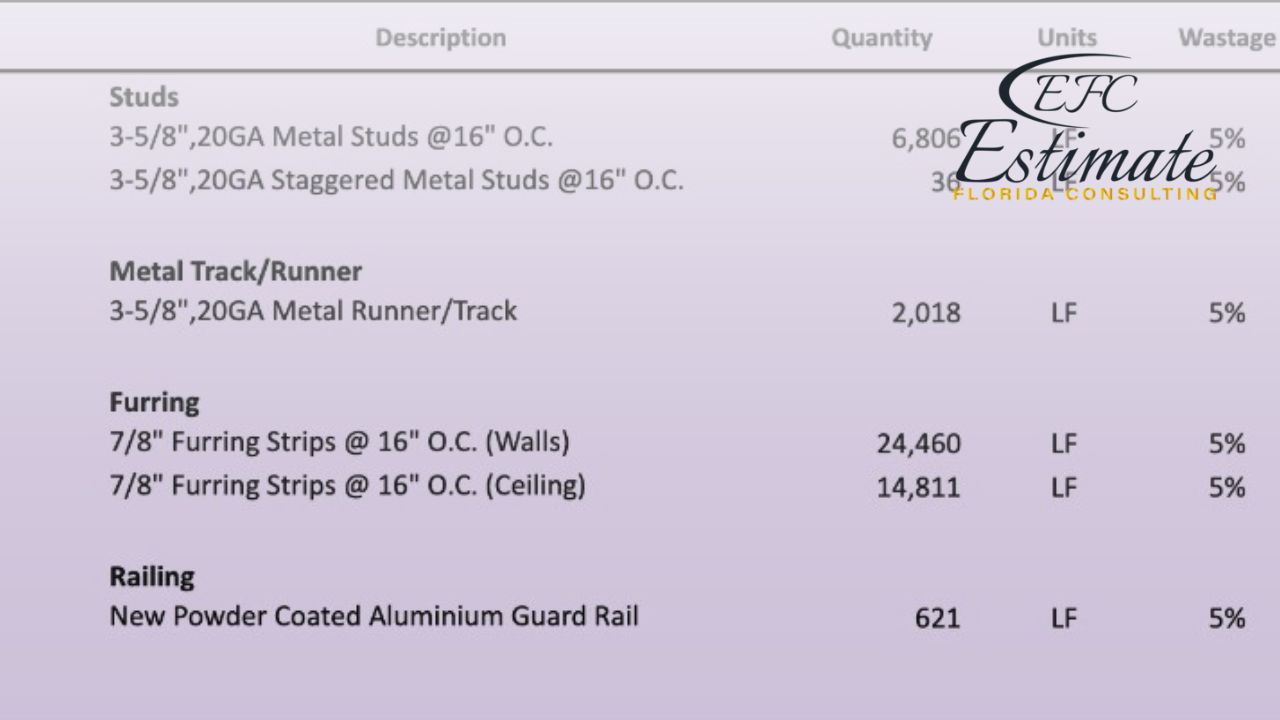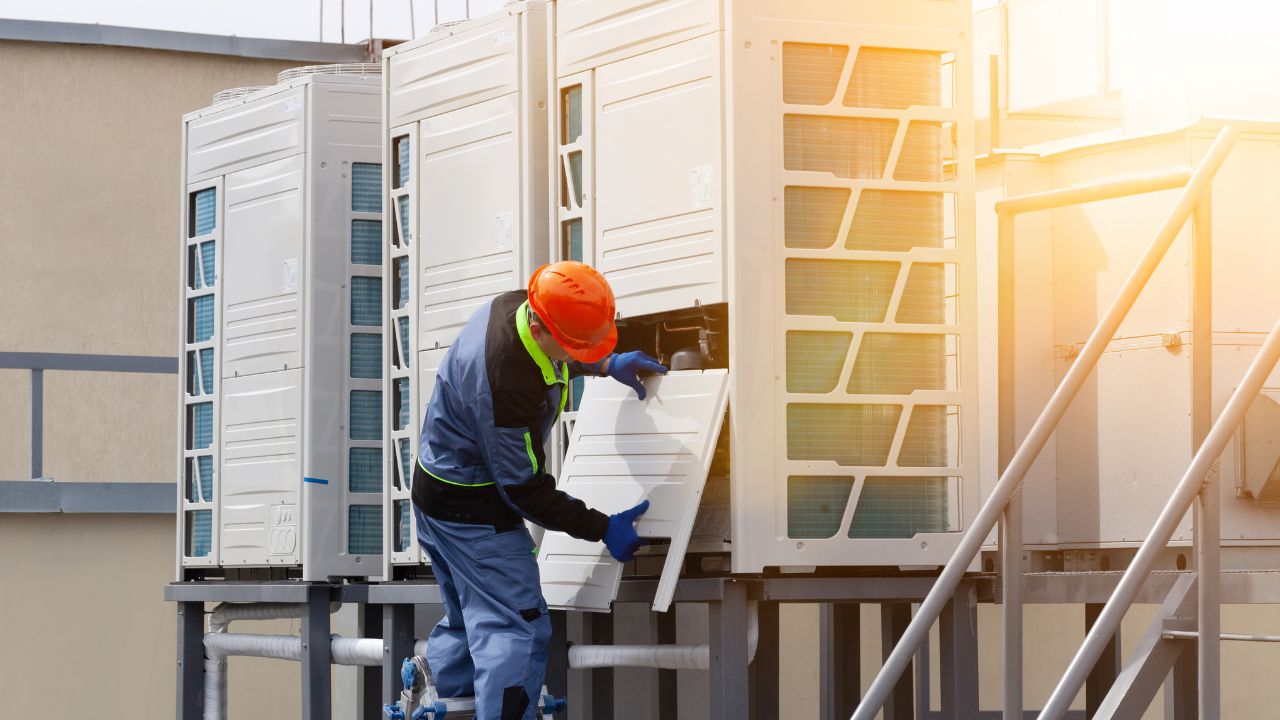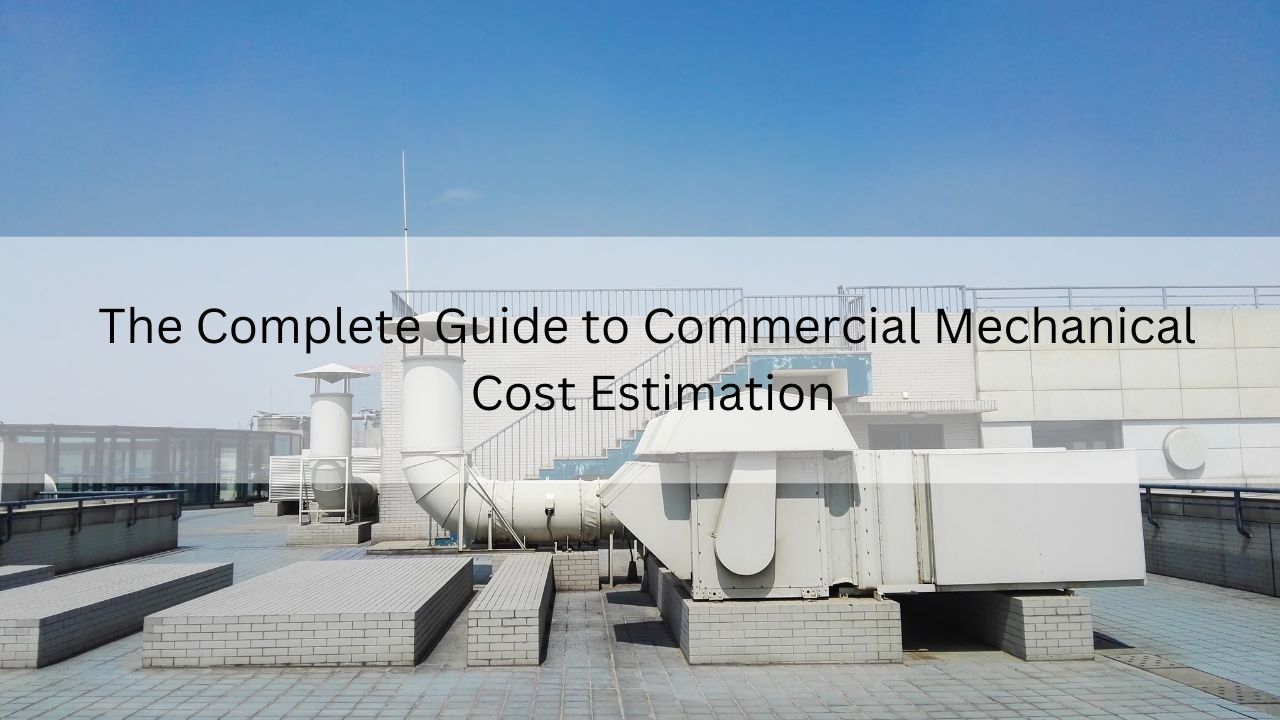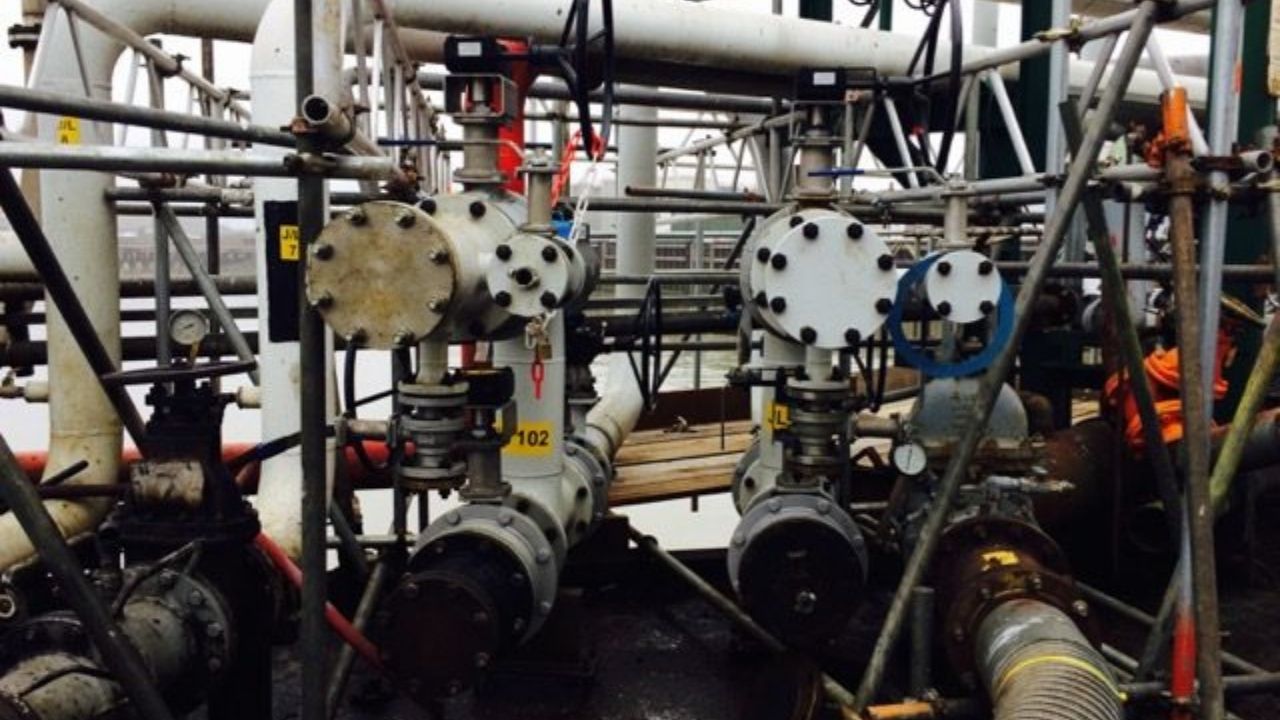Mechanical Cost Estimator in Tampa
Estimate Florida Consulting specializes in delivering meticulous mechanical cost estimates finely tuned to meet the unique requirements of our clients in Tampa. Mechanical cost estimation serves as the financial roadmap for engineering and construction endeavors, ensuring projects stay within budgetary constraints. Costs can vary significantly: for smaller projects, estimates may range from $10,000 to $100,000, while mid-sized projects could entail expenses ranging from $200,000 to $1 million. Larger-scale ventures, such as those in the aerospace industry prevalent in Tampa, might require budgets exceeding $10 million, depending on the intricacy and scale of the project.
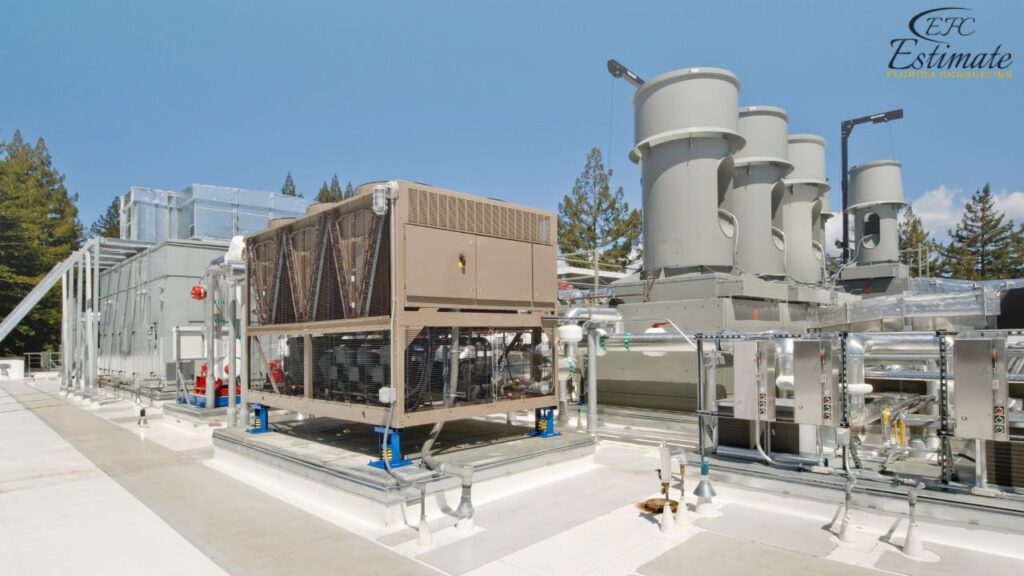
Our team is dedicated to providing accurate estimates tailored to the specific needs of each project, facilitating informed decision-making and successful project execution.
Mechanical Ventilation Cost by Type
Mechanical air exchange systems typically range in cost from $520 to $10,000. These systems utilize fans that are installed in windows, walls, or air ducts to either remove or add air to the home. Condensation, which forms when warm air comes into contact with cold surfaces, can be prevented using these fans, which either extract air or introduce air to maintain balanced air quality within the room. A balanced mechanical ventilation system ensures that the air quality meets specific design specifications.
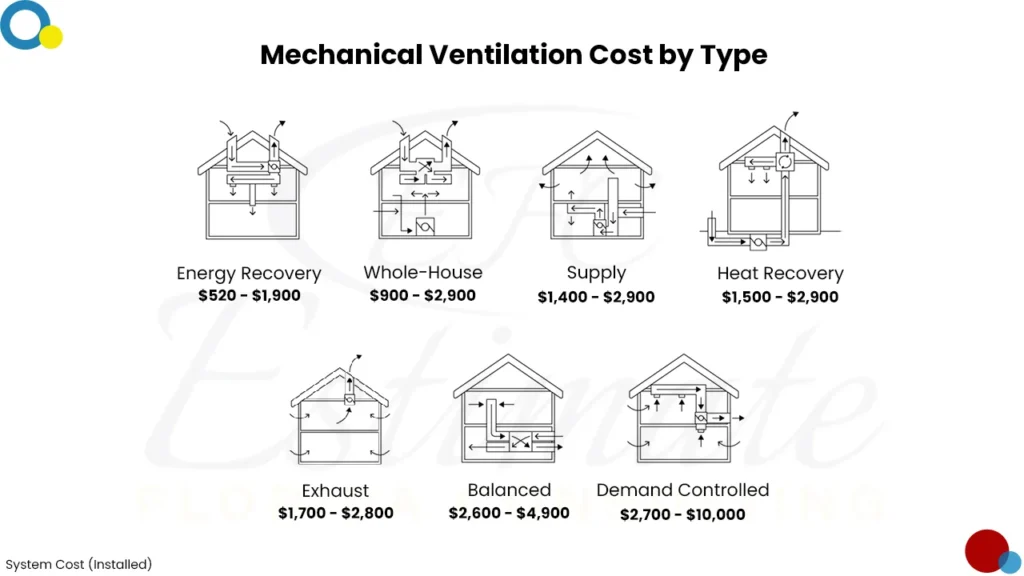
Mechanical Ventilation Type | System Cost (Installed) |
Energy Recovery | $520 – $1,900 |
Whole-House | $900 – $2,900 |
Supply | $1,400 – $2,900 |
Heat Recovery | $1,500 – $2,900 |
Exhaust | $1,700 – $2,800 |
Balanced | $2,600 – $4,900 |
Demand Controlled | $2,700 – $10,000 |
90% More Chances to Win Projects With Our Estimate!
- Multi-Family Building
- Hotel Building
- Hospital Building
- Warehouse Building
- School & University Building
- High-Rise Building
- Shopping Complex
- Data Center Building
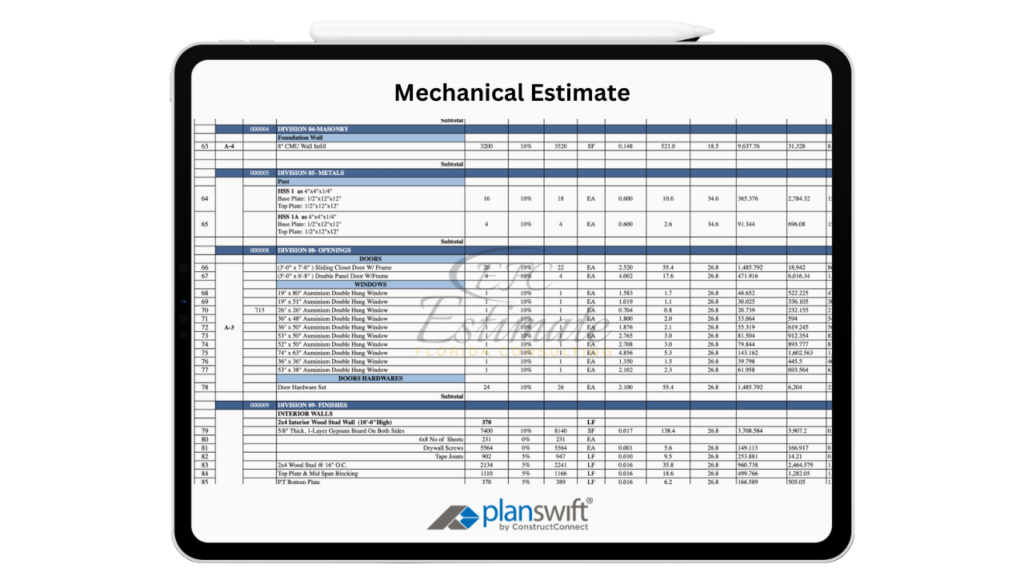
Cost by Size of Project
Projects vary widely in size and scope, with small-scale endeavors typically encompassing basic renovations or minor installations. Medium-scale projects involve more substantial undertakings such as building construction or system upgrades. Large-scale projects encompass major developments like infrastructure improvements or commercial constructions. Industrial-scale projects represent the most extensive ventures, including large-scale manufacturing facilities or industrial complexes, reflecting the complexity and magnitude of the endeavor.
Size of Project | Estimated Cost Range |
Small-scale Projects | $5,000 – $50,000+ |
Medium-scale Projects | $50,000 – $500,000+ |
Large-scale Projects | $500,000 – $5,000,000+ |
Industrial-scale Projects | $1,000,000 – $10,000,000+ |
Understanding the Mechanical Industry in Tampa
Tampa, a charming island city known for its picturesque beaches and quaint, laid-back lifestyle, hosts a vibrant mechanical industry that is an intriguing mix of heritage and forward-thinking engineering. This unique blend is essential in maintaining the city’s infrastructure, ensuring comfort for both residents and the multitude of visitors drawn to its shores each year. The mechanical industry in Tampa encompasses a wide range of services and projects, from the installation and maintenance of HVAC systems in resorts and homes to the development and upkeep of municipal water systems that are crucial for the island’s sustainability.
HVAC Systems
The demand for high-quality HVAC systems in Tampa stems from the necessity to provide comfortable indoor environments amidst the hot and humid climate of Florida. This demand is particularly prevalent in establishments such as resorts, restaurants, and residential properties, where efficient and reliable air conditioning systems are essential for ensuring guest and resident satisfaction. Mechanical contractors specializing in HVAC solutions play a crucial role in meeting these demands, leveraging modern, energy-efficient technologies to not only reduce operational costs but also minimize environmental impact.
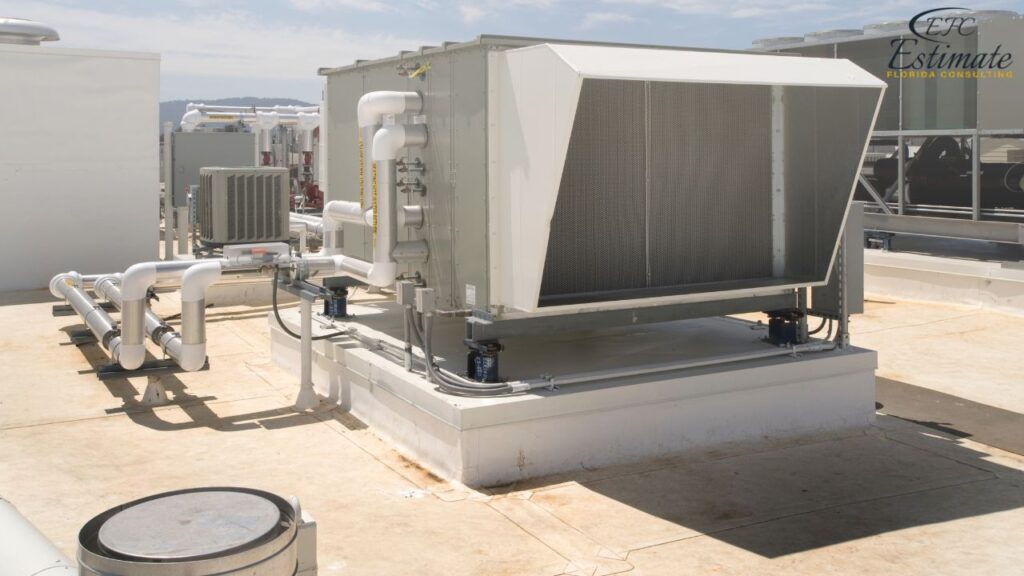
Their expertise in integrating cutting-edge solutions tailored to the unique requirements of the region contributes significantly to maintaining comfortable living and working environments in Tampa.
Municipal Water Systems
As an island community, Tampa faces distinct challenges in managing its water resources effectively. Mechanical engineers and contractors are at the forefront of designing, installing, and maintaining water systems that guarantee access to clean, potable water for all residents and visitors. Beyond water supply systems, they also address stormwater management challenges to safeguard the island’s delicate ecosystem from the impacts of heavy rains and flooding. Their innovative solutions not only ensure the availability of essential resources but also contribute to environmental sustainability and resilience in the face of climate change.
Key Players
The mechanical industry in Tampa comprises a diverse spectrum of professionals, ranging from local contractors and engineering firms specializing in specific mechanical disciplines to national companies offering comprehensive services. Collaboration among these entities is common, especially on larger projects, as they pool their expertise to address the complex needs of the community effectively. Their collective efforts ensure the seamless execution of projects, from initial design to final implementation, fostering economic growth and community development in Tampa.
- Multi-Family Building
- Hotel Building
- Hospital Building
- Warehouse Building
- High-Rise Building
- Shopping Complex
Innovative Projects
A hallmark of Tampa’s mechanical industry is its commitment to innovation and sustainability. Initiatives such as the installation of solar-powered HVAC systems in public buildings and the incorporation of environmentally friendly materials in water systems exemplify this commitment. These projects not only address immediate mechanical needs but also align with the city’s long-term sustainability goals, promoting environmental stewardship and resilience in the face of evolving challenges.
Ventilation System Cost by Type
Ventilation systems range in cost from $220 to $17,000. These systems can fall into different categories. Natural ventilation systems rely on natural forces like wind to supply fresh air into the home, while mechanical ventilation systems utilize fans to circulate air. The most suitable type of ventilation system varies depending on factors such as climate, resource availability, home layout, and individual requirements.
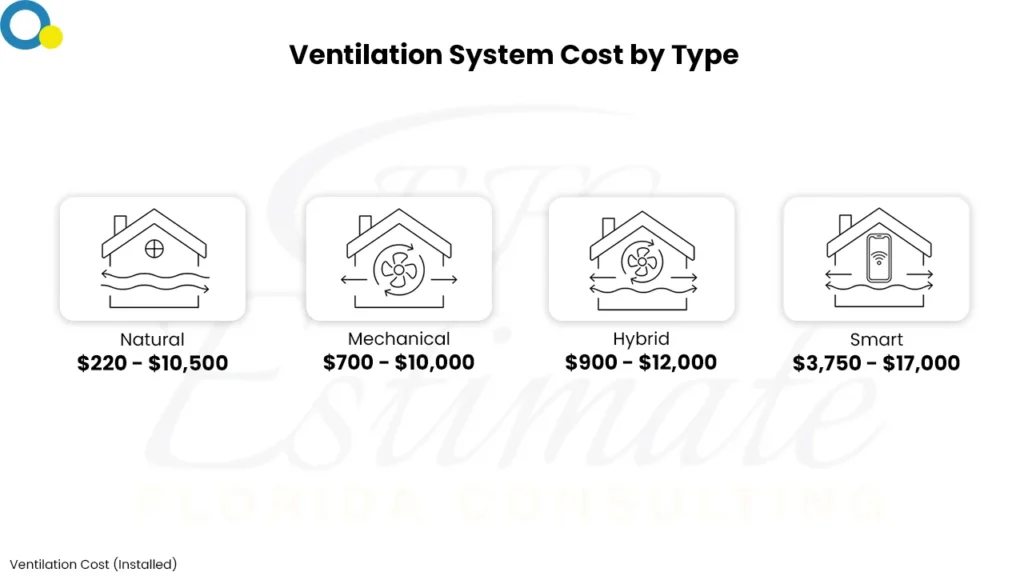
System Type | Ventilation Cost (Installed) |
Natural | $220 – $10,500 |
Mechanical | $700 – $10,000 |
Hybrid | $900 – $12,000 |
Smart | $3,750 – $17,000 |
Download Template For Mechanical Project Breakdown
- Materials list updated to the zip code
- Fast delivery
- Data base of general contractors and sub-contractors
- Local estimators

Factors Affecting Cost Estimates
Several factors significantly impact the cost estimates of mechanical projects, and understanding these variables is crucial for accurate budgeting and planning. In the context of Tampa, a unique combination of local conditions and broader market trends play a role in shaping these cost estimates.
Material Costs
The price of materials required for mechanical projects can fluctuate significantly due to various factors, including global commodity prices, supply chain issues, and local availability. These fluctuations can be particularly pronounced in regions where transportation and delivery are influenced by geographic location. Remote areas, for example, may face higher material costs due to increased transportation expenses. Moreover, shifts in global markets, such as changes in demand or disruptions in supply chains, can lead to sudden price fluctuations, impacting project budgets. Additionally, the availability of specific materials in a given location can also affect costs, with scarcity driving prices higher. Therefore, prudent project planning must consider not only the current costs but also anticipate potential fluctuations and mitigate their impact through strategic sourcing and procurement practices.
Labor Rates
Labor costs represent a significant portion of project expenses and are influenced by various factors, including the skill level required, the availability of qualified professionals, and regional wage standards. In areas where the labor market is competitive or specialized skills are in high demand, labor rates tend to be higher, reflecting the cost of living and prevailing wage standards. Moreover, geographic location can play a crucial role in determining labor costs, with urban areas often commanding higher wages compared to rural regions. Additionally, factors such as unionization rates, labor regulations, and prevailing economic conditions can further influence labor rates, contributing to the variability in project costs.
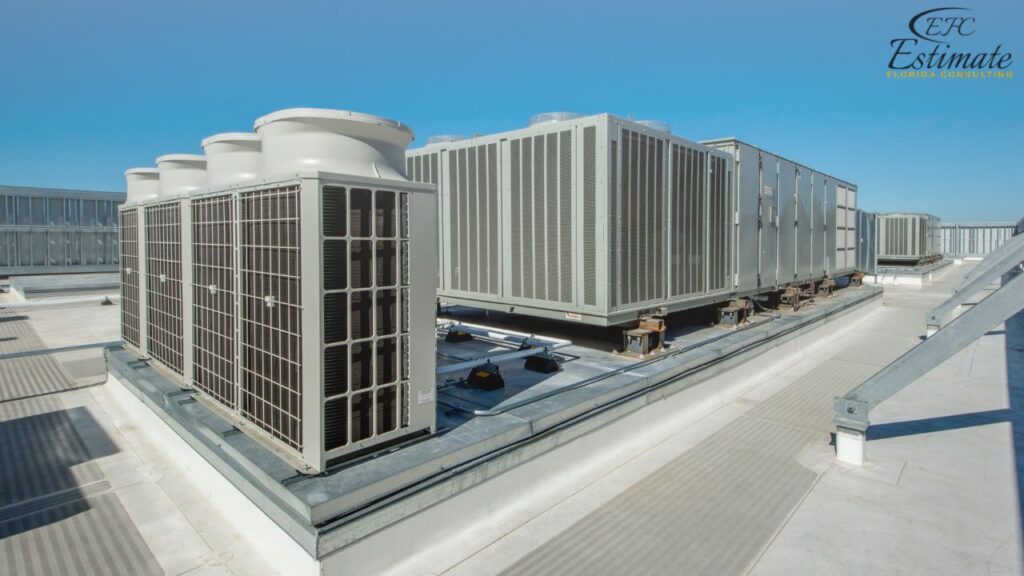
Therefore, accurately estimating labor expenses requires a comprehensive understanding of local labor dynamics and market trends to ensure project budgets remain realistic and feasible.
Project Complexity
The complexity of mechanical projects significantly impacts their cost, as intricate requirements often necessitate specialized expertise, custom solutions, and advanced technologies. Projects with high levels of complexity may involve intricate design considerations, sophisticated equipment, and intricate installation processes, all of which contribute to higher costs. Moreover, factors such as regulatory compliance, environmental considerations, and safety standards can further complicate project execution, requiring additional resources and expertise. In regions where stringent regulations or unique environmental challenges exist, such as seismic zones or coastal areas, project complexity may be heightened, leading to increased costs. Therefore, accurately assessing and managing project complexity is essential to ensure that resources are allocated effectively and project objectives are met within budget constraints.
Location-specific Factors
The location of a project plays a crucial role in determining its overall cost, as various location-specific factors can significantly impact project expenses. Accessibility, for instance, can influence transportation costs and logistical challenges, particularly in remote or geographically isolated areas. Moreover, the local regulatory environment, including zoning regulations, permitting requirements, and building codes, can add complexity and cost to project execution. Climate conditions also play a significant role, with extreme weather events or environmental hazards requiring specialized design considerations and materials, which can increase costs. Additionally, factors such as land availability, infrastructure development, and proximity to suppliers and resources can further influence project costs, highlighting the importance of considering location-specific factors in project planning and budgeting efforts.
Business Finance Loan
Find out if you're pre-qualified in seconds

Get Prequalified Now
IMPORTANT: Make sure the email and phone number you enter are correct. We will email and text you a link to get started.
Air Source Heat Pump Cost by Type
Air source heat pumps come in various types, each offering distinct advantages to suit different needs and preferences. Ductless systems provide flexibility and efficiency without requiring extensive ductwork, making them ideal for smaller spaces or retrofitting existing structures. Short-run ducted systems offer a compromise between ductless and fully ducted systems, providing enhanced airflow control and zoning capabilities. Fully ducted or central systems provide comprehensive heating and cooling solutions for larger homes or commercial properties, utilizing existing ductwork or installing new ducts for optimal airflow throughout the space. Each type of air source heat pump offers unique features and benefits, allowing homeowners and businesses to select the option that best fits their specific requirements.
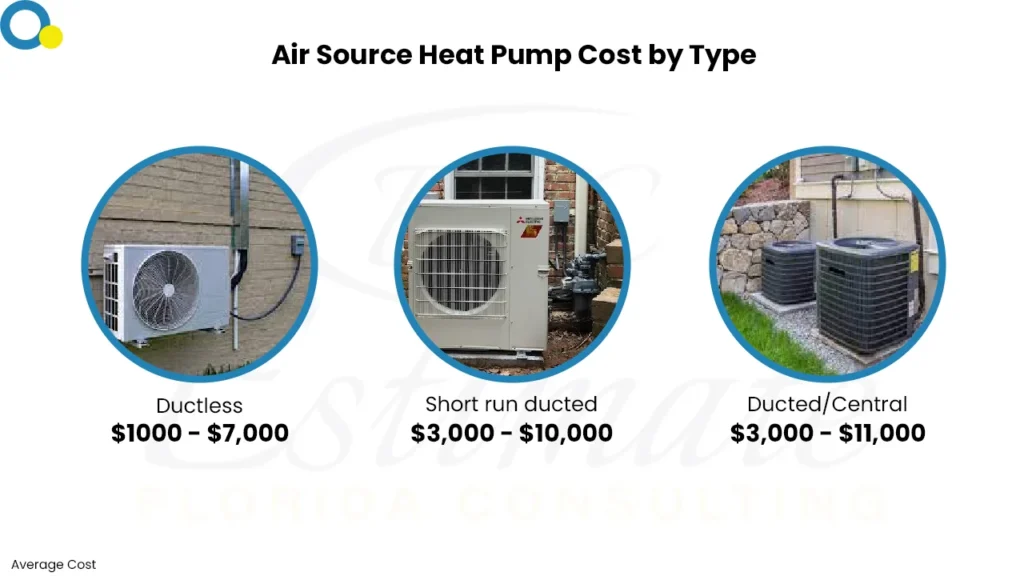
Type of Air Source Heat Pump | Cost Range |
Ductless | $1,000 – $7,000 |
Short Run Ducted | $3,000 – $10,000 |
Ducted/Central | $3,000 – $11,000 |
Estimate Your Project With Us
Common Challenges and Solutions in Mechanical Cost Estimation:
Uncertainty in Project Scope
Challenge: The scope of mechanical projects in Tampa can evolve or change unpredictably, leading to challenges in accurately defining project requirements and deliverables.
Solution: Implementing robust change management processes and conducting thorough feasibility studies can help identify potential scope changes early on. Additionally, maintaining open communication channels with stakeholders ensures clarity and alignment regarding project objectives and scope.
Fluctuating Market Prices
Challenge: Mechanical cost estimators must contend with volatile market conditions, including fluctuations in material costs, labor rates, and equipment prices, which can impact project budgets.
Solution: Employing dynamic pricing models that account for market trends and conducting regular market analysis enables estimators to adjust cost projections accordingly. Negotiating long-term contracts with suppliers and subcontractors can also provide stability and mitigate the impact of price fluctuations.
Regulatory Compliance
Challenge: Meeting stringent regulatory requirements imposed by government agencies and industry standards adds complexity to mechanical cost estimation, requiring adherence to safety, environmental, and quality regulations.
Solution: Establishing a comprehensive understanding of regulatory frameworks and proactively engaging regulatory authorities during project planning helps identify compliance requirements upfront. Implementing robust quality assurance and control measures ensures adherence to regulatory standards throughout project execution, minimizing the risk of costly delays or penalties.
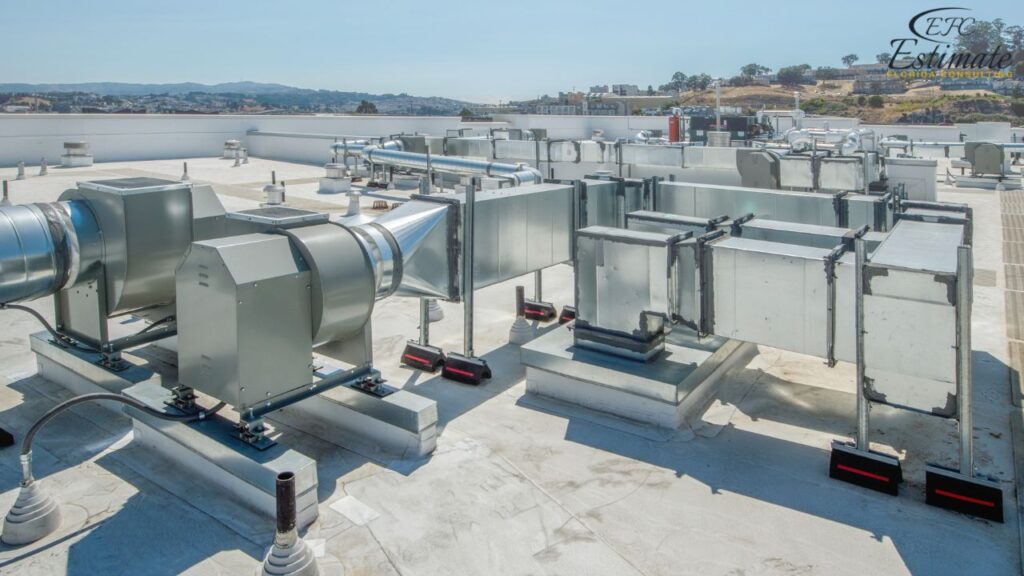
Technological Advancements
Challenge: Rapid advancements in technology introduce new materials, equipment, and methodologies, posing challenges in accurately estimating costs for innovative solutions.
Solution: Investing in continuous professional development and staying abreast of emerging technologies enable estimators to incorporate the latest advancements into their cost models. Collaboration with engineering and research teams facilitates early involvement in technology selection and integration, ensuring accurate cost projections for cutting-edge solutions.
Resource Constraints
Challenge: Limited availability of skilled labor, specialized equipment, and logistical resources in Tampa’s aerospace industry presents challenges in resource allocation and scheduling.
Solution: Developing strategic partnerships with subcontractors, suppliers, and training institutions helps augment resource capabilities and address skill gaps. Implementing efficient resource management practices, such as optimizing workforce utilization and investing in equipment maintenance and upgrades, maximizes productivity and minimizes project costs.
Need Template For Your Mechanical Business
We provide services for Brochure, Banner, Business Card, Envelope, Invoice, etc.

Steps in the Plumbing Cost Estimation Process in Tampa
Project Evaluation and Scope Definition
The first step in plumbing cost estimation involves thoroughly evaluating the project requirements and defining the scope of work. This includes reviewing architectural and engineering plans, understanding plumbing system specifications, and identifying any unique considerations or constraints specific to the project site. Clear communication with project stakeholders is essential to ensure alignment on project objectives, timelines, and budgetary constraints.
Site Visit and Assessment
Conducting a site visit allows plumbing estimators to assess existing conditions, identify potential challenges, and gather essential information that may impact cost estimation. During the site assessment, factors such as access to utilities, existing plumbing infrastructure, and site layout are evaluated to inform the estimation process accurately. Additionally, site visits provide an opportunity to address any site-specific requirements or regulatory considerations that may affect plumbing system design and installation.
Material and Equipment Selection
Selecting appropriate materials and equipment is critical for ensuring the reliability and efficiency of plumbing systems while also managing costs effectively. Plumbing estimators work closely with suppliers and manufacturers to evaluate available options, compare pricing, and identify products that meet project specifications and performance requirements. Factors such as material durability, compatibility, and lifecycle costs are considered during the selection process to optimize value and minimize long-term maintenance expenses.
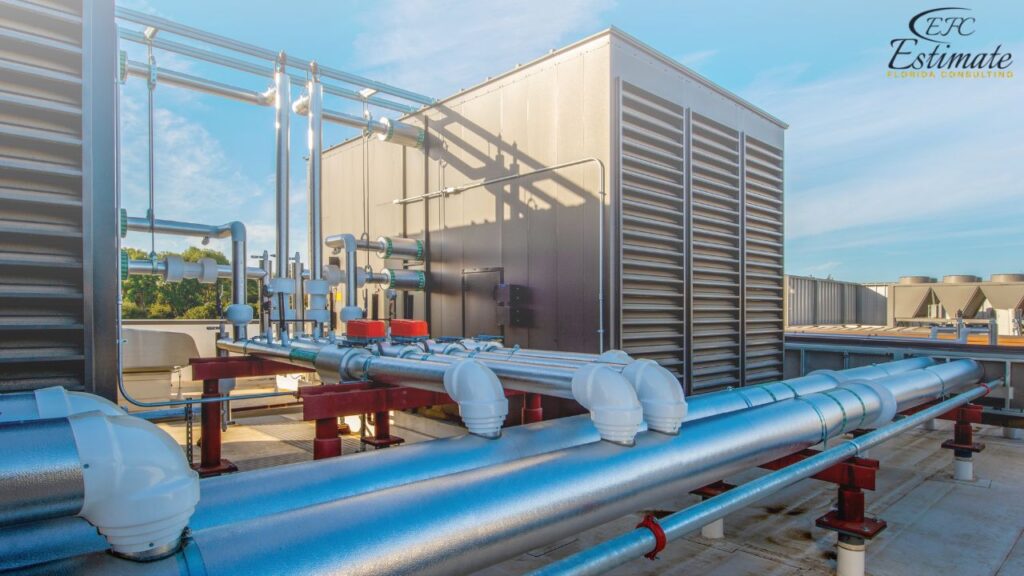
Labor and Resource Allocation
Estimating labor requirements involves determining the number of skilled tradespeople, such as plumbers and pipefitters, needed to complete the project within the specified timeframe. Plumbing estimators assess labor rates, productivity factors, and project complexities to develop accurate labor cost estimates. Additionally, resource allocation for equipment, tools, and subcontracted services, such as excavation or trenching, is carefully evaluated to ensure adequate resources are allocated to each aspect of the project.
Cost Calculation and Analysis
Once all project parameters have been evaluated, plumbing estimators calculate costs for materials, labor, equipment, and subcontracted services based on the information gathered during the assessment process. Detailed cost breakdowns are prepared, allowing stakeholders to understand the composition of project costs and identify areas for potential cost optimization or value engineering. Sensitivity analysis may be conducted to assess the impact of variations in key cost drivers, such as material prices or labor rates, on overall project costs.
Contingency Planning
Anticipating and mitigating potential risks is an essential aspect of plumbing cost estimation. Estimators incorporate contingency allowances into their cost projections to account for unforeseen circumstances, such as material shortages, design changes, or site conditions that may impact project timelines or budgets. Contingency planning helps minimize project disruptions and ensures that adequate resources are available to address unexpected challenges as they arise, maintaining project momentum and reducing the likelihood of cost overruns.
Are You Looking For?
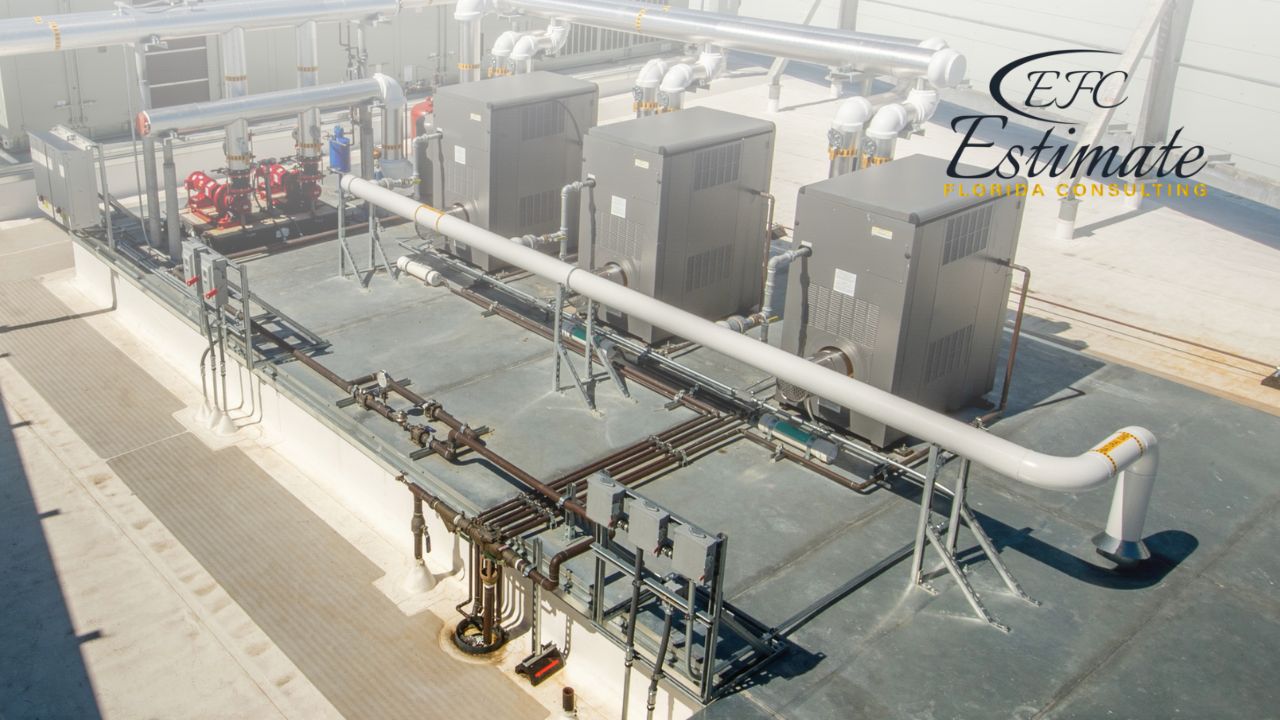
Fully Insured License
Hire Subcontractor For Mechanical Work
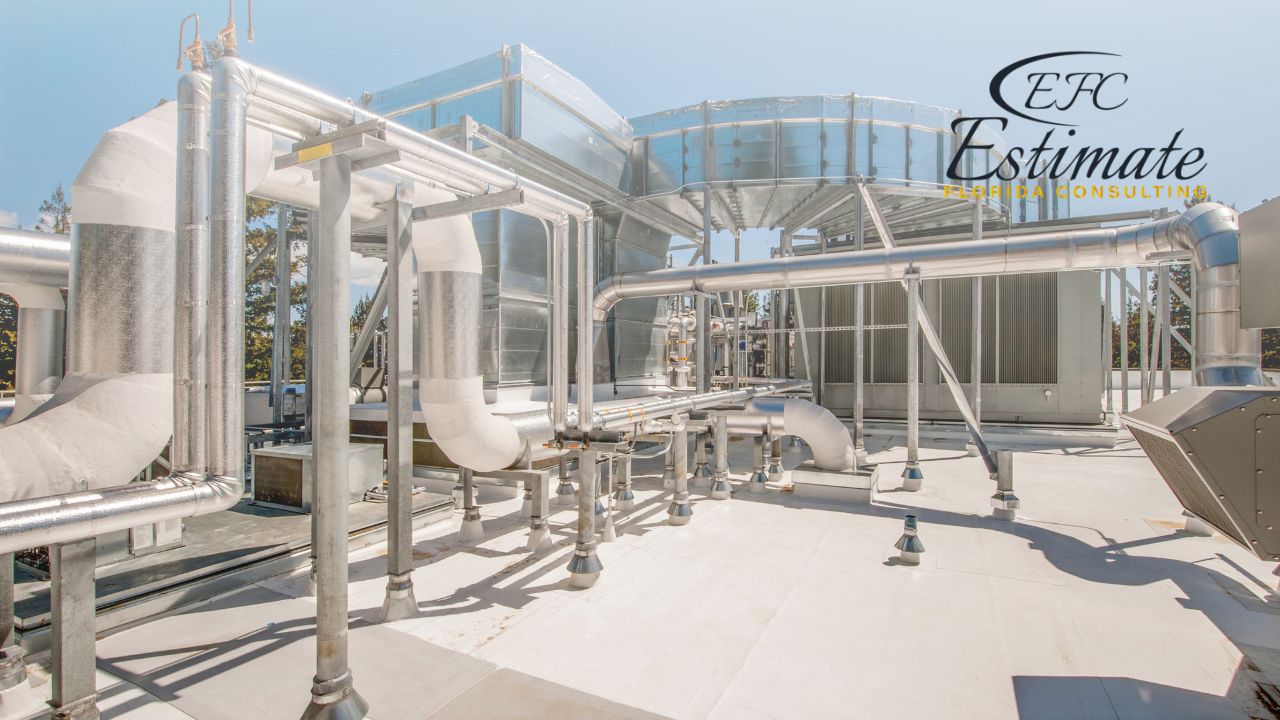
Make Informed Design Decisions Showcase Your Design Ideas
Get RenderingCall Us To Discuss More at 561-530-2845
Conclusion
The field of Mechanical Cost Estimation in Tampa encompasses a wide array of projects and systems, each varying in complexity and cost. From small-scale renovations to large industrial ventures, the estimated costs can range significantly, reflecting the diverse needs and requirements of clients in this dynamic region. Precise cost estimation is essential for guiding engineering and construction endeavors, serving as the financial blueprint for projects. Additionally, mechanical systems play a critical role in maintaining comfort, safety, and efficiency across various environments, influencing daily operations and sustainability efforts across industries. With meticulous cost estimation and effective system implementation, projects in Tampa can achieve their goals efficiently and sustainably.
We Provide Services for Other Trades in Tampa
FAQs
The cost of mechanical projects in Tampa can be influenced by various factors, including the scale and complexity of the project, the specific requirements and specifications, the availability and cost of materials and labor, as well as any regulatory or environmental considerations unique to the area.
Estimate Florida Consulting strives to provide highly accurate cost estimates tailored to the specific needs of our clients in Tampa. Our team utilizes industry-standard methodologies and leverages extensive experience to ensure that our estimates are as precise as possible, helping clients plan and budget effectively for their mechanical projects.
Yes, Estimate Florida Consulting offers comprehensive services beyond initial cost estimation, including ongoing budget management and cost tracking throughout the duration of a project. Our team works closely with clients in Tampa to monitor expenses, identify potential cost-saving opportunities, and ensure that projects stay on track financially.
Estimate Florida Consulting offers cost estimation services for a wide range of mechanical systems, including HVAC (heating, ventilation, and air conditioning), plumbing, electrical systems, fire protection systems, refrigeration systems, industrial machinery, and more. Whatever the project requirements may be, our team is equipped to provide accurate cost estimates tailored to the specific needs of our clients in Tampa.
To request a cost estimate for your mechanical project in Tampa, simply contact Estimate Florida Consulting through our website or by phone. Our team will work closely with you to gather the necessary project details and specifications, and we’ll provide you with a comprehensive cost estimate tailored to your specific requirements on time.
Process To Get Mechanical Cost Estimate Report
Here I am going to share some steps to get your mechanical cost estimate report.
-
You need to send your plan to us.
You can send us your plan on info@estimatorflorida.com
-
You receive a quote for your project.
Before starting your project, we send you a quote for your service. That quote will have detailed information about your project. Here you will get information about the size, difficulty, complexity and bid date when determining pricing.
-
Get Estimate Report
Our team will takeoff and estimate your project. When we deliver you’ll receive a PDF and an Excel file of your estimate. We can also offer construction lead generation services for the jobs you’d like to pursue further.
Google Reviews



Reach Out To Us
Places to visit if you new in Tampa
Take a leisurely stroll along the picturesque Tampa Riverwalk, which stretches for 2.6 miles along the Hillsborough River. Along the way, you’ll encounter parks, museums, cafes, and stunning views of the city skyline.
Dive into an underwater world of marine life at the Florida Aquarium. From playful otters to majestic sharks, this attraction offers fascinating exhibits for visitors of all ages.
Gain insight into the region’s past at the Tampa Bay History Center. With interactive exhibits, artifacts, and multimedia displays, it provides a captivating journey through Tampa’s cultural heritage.
Art enthusiasts won’t want to miss the Tampa Museum of Art, home to an impressive collection of contemporary and classical works. The museum’s striking architecture and rotating exhibitions make it a must-see destination.

